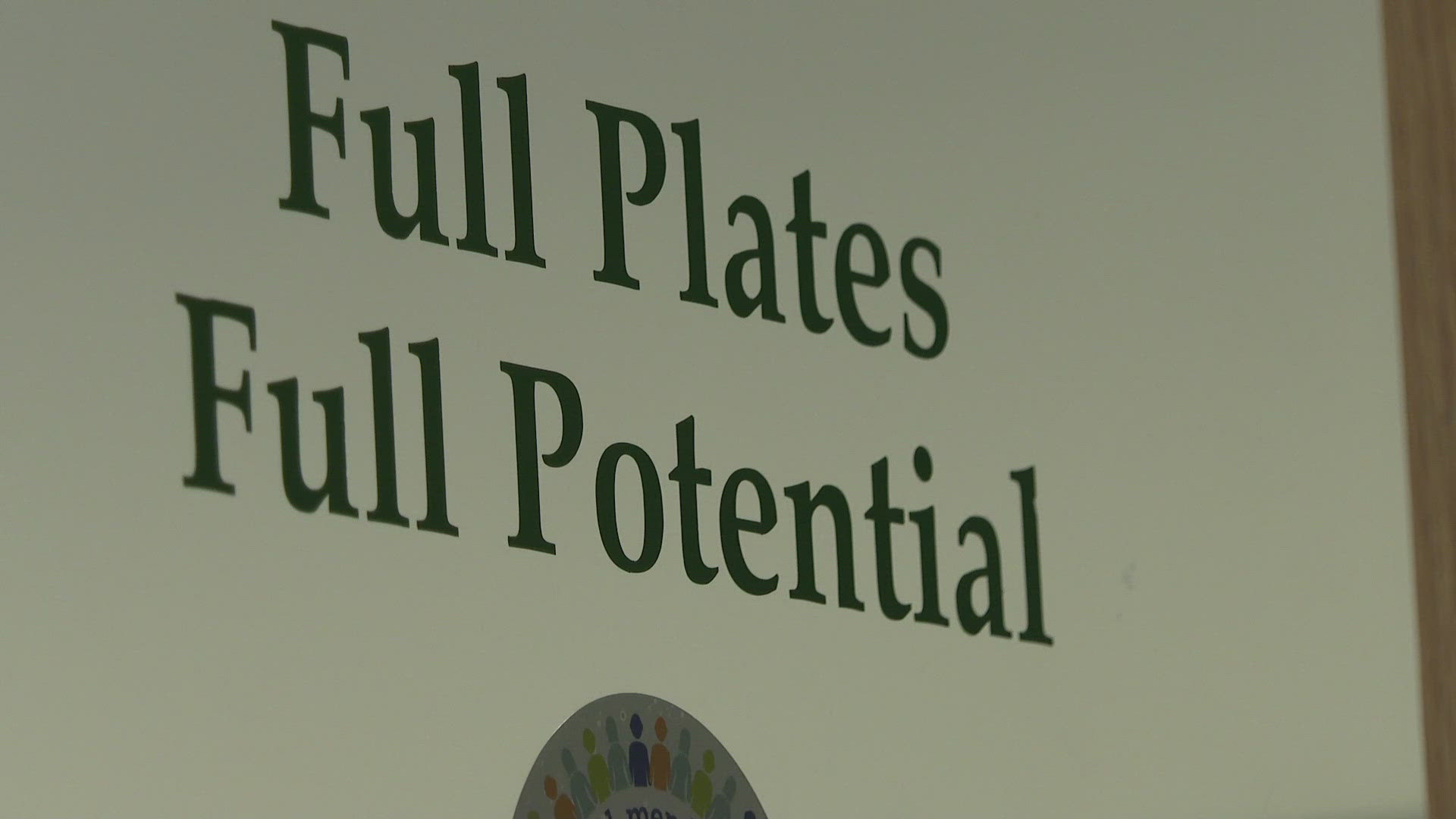BRUNSWICK, Maine — Maine school districts will soon get a funding boost when it comes to providing healthy, locally grown meals.
The nonprofit Full Plates Full Potential was awarded $7.4 million in School Food System Innovation Grants as part of the U.S. Department of Agriculture's Healthy Meals Incentives Initiative.
The Brunswick-based group will distribute those funds to seven local organizations that are working on projects to reimagine what local food systems—supporting farm-to-school and sea-to-school initiatives, for example—that "bring more local ingredients into school cafeterias," according to the non-profit.
According to Full Plates, there are six key objectives with these grants:
- Strengthening Maine's food supply chains
- Increasing the sourcing and use of Maine foods in school meal programs
- Addressing barriers for schools
- Supporting school nutrition teams
- Fostering lasting partnerships
- Establishing sustainable solutions for best practices for local food systems
Executive Director Justin Strasburger said these grants can help local nonprofits work together and share best practices with a goal of ending childhood food insecurity.
Strasburger said the mission of Full Plates Full Potential is to work toward "true systems change" so the organization doesn't have to exist, meaning childhood food insecurity is no longer an issue in Maine.
“The stat we’re working is one in five kids is dealing with food insecurity. The reality is, it’s likely much higher than that, which is a really sad thing to say," Strasburger added.
He said childhood hunger is present in every Maine community, whether you see it or not. Any Mainer can help families in need, Strasburger said, by supporting local food pantries or school-based programs.
Maine's free school meal program put the state on the map, Strasburger said, and that's one reason why the USDA awarded funds to Maine organizations. He said while that's a great program, school districts still need to meet students' health and religious needs, and these grants can help do that while also supporting local farmers and fishermen.
The seven organizations will be awarded funds from $100k,000 to $1 million. The groups receiving that money, and details of their projects, were provided through a news release:
Good Grains on the Go (Skowhegan, ME) will pilot and develop local, value-added “convenience foods” popular with students like pizza, calzones, and other whole-grain based breakfast and lunch items using Maine grains and other local ingredients.
Halal Meal Production Hub (Unity, ME) will pilot and develop culturally responsive halal certified heat and serve value-added school meals using local ingredients.
Streamlining Access to Maine Grown K-12 Products (Unity, ME) will expand existing work to aggregate and distribute high-quality local foods to Maine schools using a centralized online ordering system and collaborative distribution infrastructure.
Fishermen Feeding K-12 Mainers (Brunswick, ME) will expand an existing program to get local fish into schools and will also pilot and develop local, value-added seafood products for Maine schools.
School-Based Food Hub (Auburn, ME) will establish a collaborative, regional, school food processing and distribution hub in the Lewiston-Auburn area.
Somerset County Farm to School Initiative (Skowhegan, ME) will build upon an existing partnership between Somerset County local schools, Somerset Public Health, and the Somerset County Jail to supply local food to the schools starting with seedlings planted by the students that are then grown, harvested, and processed by the inmates .
Local Food Switchboard (statewide) will create an online local food hub and database to strengthen connections within Maine’s local food system to increase local food processing capacity, expand distribution channels, and ultimately connect more local food products to Maine schools.
The funds must be used by June 28, 2028.
Strasburger said more information will be announced this fall, as the projects begin to take shape.

